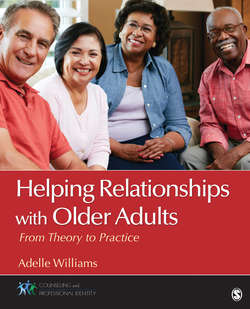Читать книгу Helping Relationships With Older Adults - Adelle M. Williams - Страница 18
На сайте Литреса книга снята с продажи.
Autoimmune Theory of Aging
ОглавлениеThe autoimmune theory of aging proposes that protective immune reactions decline with age, as the body becomes less capable of producing sufficient antibodies (Bengtson, Putney, & Johnson, 2005). According to this theory, aging is attributed to the decline of the body’s immunological system. Studies indicate that as individuals age, the body’s ability to produce necessary antibodies declines and immune systems become less effective in fighting disease (Bengtson et al., 2005). At the same time, the white blood cells active in immune response become less able to recognize foreign invaders and are more likely to mistakenly attack the body’s own proteins. For example, one hypothesis proposes that cancer rates are higher in older people because the immune system’s surveillance mechanism may not recognize and destroy precancerous cells as it does in younger individuals (Bengtson et al., 2005).
Additionally, the aging immune system mistakenly produces antibodies against normal body proteins, leading to a loss of self-recognition. An example of this is rheumatoid arthritis, in which the immune system attacks the joints, particularly the hands, wrists, feet, ankles, and knees. While a decline in immune system functioning causes disease, there is no evidence to suggest that a less efficient immune system causes aging (Hayflick, 1996). This theory is unable to account for the mechanism of biological aging, the progressive generalized impairment of functioning that occurs as people grow older. However, the autoimmune theory is another theory that attempts to explain why diseases occur. Its basic premise is that immune reactions normally directed against disease-producing organisms as well as foreign proteins or tissue begin to attack cells of the individual’s own body.
